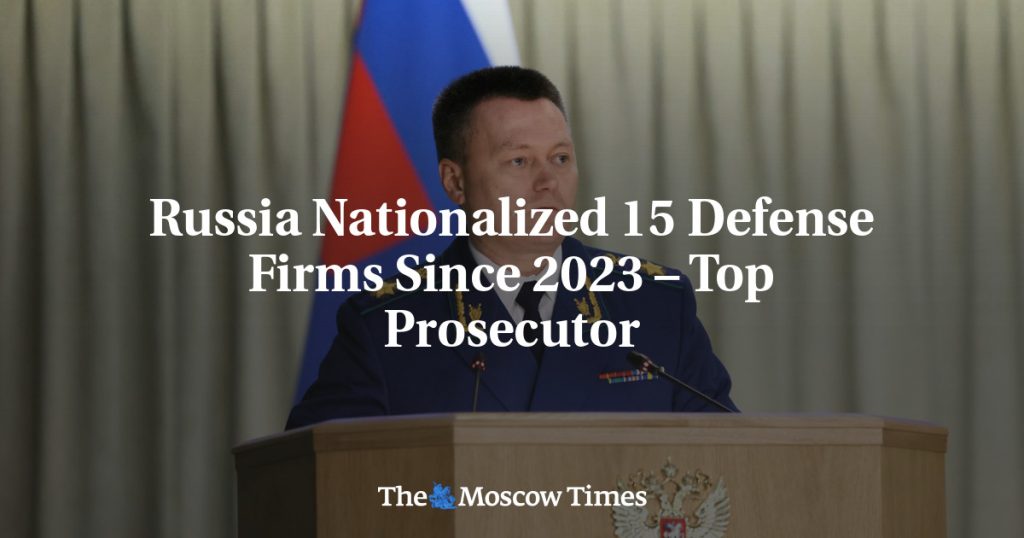Since last year, the Russian government has taken control of 15 defense companies worth 333 billion rubles, amidst their invasion of Ukraine. The move is part of a broader effort to nationalize key assets in the defense industry in order to increase control over military production. Despite criticism, officials like President Putin deny that this is a de-privatization or nationalization of the economy. The companies were returned to state ownership due to abuses by their executives and government officials who did not have the authority to handle state property.
Russian Prosecutor General Igor Krasnov stated that the seized assets, which include the Chelyabinsk Electrometallurgical Plant, are worth 1 trillion rubles. He also claimed that some of the funds had been used to finance terrorist activities in Ukraine. The case involving the Chelyabinsk Plant saw its former owner, Yury Antipov, arrested on fraud charges. State prosecutors accused him of transferring assets to unfriendly countries to harm national defense and security interests. Antipov’s defense, however, argued that the plant’s products were not directly linked to the military-industrial sector.
The nationalization of these defense companies has been controversial, with critics raising concerns about the legality and motivations behind the seizures. Some view it as a power grab by the Russian government to consolidate control over key industries, particularly in light of the ongoing conflict in Ukraine. The government’s justification for the seizures is rooted in allegations of misconduct by the companies’ executives and former government officials who mishandled state property.
President Vladimir Putin and other officials have defended the nationalization efforts, insisting that they are necessary to protect Russia’s national security interests and prevent the misuse of state assets. While the move has sparked debate both within Russia and internationally, the government remains steadfast in its commitment to taking control of strategic defense enterprises. The ongoing conflict in Ukraine has further fueled tensions and prompted the Russian government to take decisive action in safeguarding its military-industrial complex.
The Russian government’s aggressive stance on nationalizing defense companies is part of a broader strategy to enhance military capabilities and assert its dominance in the region. By seizing control of key assets, Russia aims to strengthen its position in the defense industry and maintain a competitive edge in the global arms race. However, critics warn that the nationalization of defense companies could have negative repercussions, including stifling innovation and damaging relations with foreign partners. As tensions continue to escalate, the implications of the government’s actions on the defense industry and overall economy remain uncertain.
In conclusion, the nationalization of defense companies in Russia represents a significant shift in the country’s economic and political landscape. The government’s efforts to take control of strategic assets are driven by security concerns and the need to protect national interests. While the move has been met with criticism and skepticism, it underscores Russia’s determination to assert its influence in the defense industry and ensure its military superiority. As the situation continues to evolve, the impact of the nationalization on Russia’s economy and relations with foreign partners will be closely watched.















